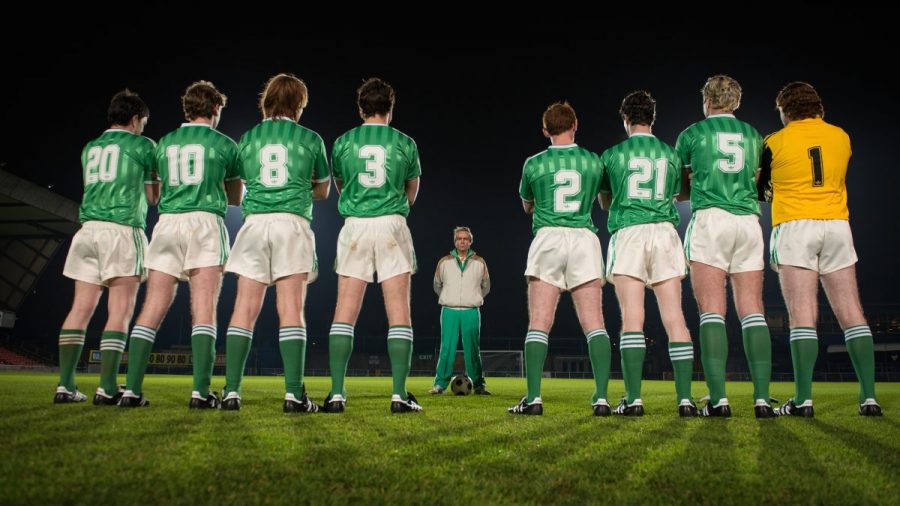In cinemas from Fri 5 June 2015
James Erskine / UK / 2015 / 91 minutes
Shooting for Socrates tells the story of the Northern Ireland national football team after qualifying for the finals of the 1986 World Cup.
The story focuses partly on the life of nine-year-old football fan Tommy (Art Parkinson), struggling to sleep through nightly violence on the streets of Belfast. The other half follows the Northern Irish team as they travel first to Mexico for training, then south to Brazil for the biggest match of their lives.
The atmosphere of 1980s Belfast is extremely well-realised, from the distinctive fashion to the weak look of relief on the face of Tommy’s mother (Bronagh Gallagher) as he returns home safe after another violent clash erupts.
The film excels in its smaller moments: the uncomplicated joy of the players after the victory that earns them a place in the final, religious divisions forgotten; the scratched out “London” on the road sign to Londonderry; Tommy’s blink-and-you’ll-miss-it reference to ‘our ones’, immediately seized upon by his determinedly neutral father. Meanwhile, Nico Mirellegro, as young newcomer to the team David Campbell, provides the emotional heart, as he begins to realise that the World Cup is about far more than football for the Irish people.
Despite these nuanced moments, however, Shooting for Socrates ultimately fails to attain the quality it strives for. This is a film almost entirely without subtext, unnecessarily stating explicitly every character motivation, historically significant moment and plot twist.
The dialogue is largely uninspired, with the conversations between Northern Ireland manager Billy Bingham (John Hannah) and his wife Rebecca (Lorraine Sass) standing out as especially banal. This is not the fault of the actors; Sass in particular falls victim to the entire lack of screen time given to women in Socrates, and is largely reducing to active listening.
As a film about football, Socrates keeps the beautiful game front and centre, which is certainly no criticism, arguably allowing one of the film’s biggest assets to shine. In particular, Conleth Hill – of Game of Thrones fame – excels as legendary football commentator Jackie Fullerton. Funny and warm, his memorable performance is a nostalgic throwback to a different era of news reporting.
History is what this film does best. Shooting for Socrates is not without its faults, but it tells an important story of the moment a warring country was temporarily united.
